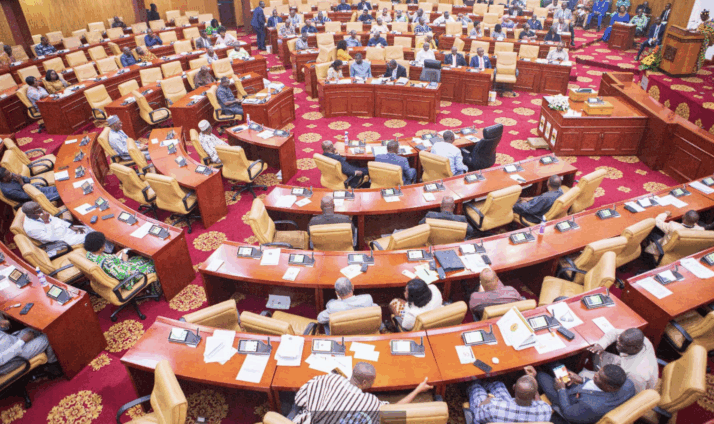Dozens of public and private institutions, including some of the country's highest offices of state, have been fined a total of GHC5.6 million (approximately $450,000) for violations of Ghana’s Right to Information (RTI) Act, according to a new investigation published by anti-corruption watchdog Corruption Watch.
The investigation, conducted over a six-month period between February and July 2025, found that the RTI Commission issued more than 70 determinations against at least 60 institutions for failing to comply with lawful requests for public information. The findings were detailed in a report titled “Saga Over RTI: Millions Paid as Penalty.”
Among the most prominent violators are the Ghana Police Service, which has already paid GHC450,357 in fines, and Parliament’s administrative arm, which paid GHC53,785. The Judicial Service and Attorney-General’s Department were cited for GHC100,000 and GHC50,000 in outstanding fines, respectively. The Commission on Human Rights and Administrative Justice (CHRAJ) has been fined GHC30,000, while the Social Security and National Insurance Trust (SSNIT) has paid GHC200,000.
The single largest penalty was imposed on the Agricultural Development Bank (ADB), which was fined GHC1.365 million for repeated violations. The Ministry of Education, which received the highest number of RTI-related penalties—four in total—paid GHC260,000. Other significant offenders included the Lands Commission (GHC150,000) and the Public Procurement Authority (GHC100,000).
Critically, the report noted that many of the penalties are being paid using public funds—raising questions about institutional accountability and the enforcement of transparency laws.
“These are institutions meant to uphold governance and ensure public accountability,” said Corruption Watch, a transparency initiative led by the Ghana Center for Democratic Development (CDD-Ghana). “Yet they are consistently breaching laws that are designed to keep them open and answerable to citizens.”
Repeat offenders include several ministries and agencies, such as the Ghana Education Service, Ministry of Energy, Urban Roads Department, and the Judicial Service, suggesting entrenched institutional resistance to information disclosure.
The RTI Act, passed in 2019, was intended to enhance transparency and empower citizens to access public information. However, enforcement challenges and persistent non-compliance—especially by state bodies—have raised doubts about the law’s impact.
While the RTI Commission has been proactive in issuing fines, critics say the use of taxpayer money to pay these penalties undermines the law’s deterrent effect. Transparency advocates are now calling for stricter enforcement mechanisms and personal liability for public officials who obstruct information access.
“It’s not just about the money,” said one policy analyst familiar with the report. “It’s about the signal it sends when institutions created to uphold the law are the ones consistently violating it.”
As Ghana positions itself as a leader in democratic governance on the continent, the findings present a critical test of its commitment to transparency and rule of law.













